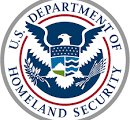
DHS wants to extend facial recognition scans at the airport to US citizens
5. Dezember 2019DHS wants to extend facial recognition scans at the airport to US citizens
New York, December 5, 2019
The US Department of Homeland Security ( DHS) wants to extend facial recognition checks for travellers to and from the US to citizens who were previously exempt from mandatory controls.
Face recognition for departing flights has increased in recent years as part of DHS’s efforts to catch visitors and travelers whose visas expire. The department, whose mission is to protect the border and control immigration, has a deadline of 2021 to introduce face recognition scanners at the 20 largest airports in the United States. This alone is obviously not an easy technical challenge to overcome.
US citizens and green card holders are currently exempt from face recognition on flights. The proposed rule change has triggered protests from some major groups working to preserve civil liberties in the US.
„Again and again, the government told the public and members of Congress that U.S. citizens would not be required to submit to this intrusive surveillance technology as a condition of travel,“ said Jay Stanley, a senior political analyst for the American Civil Liberties Union. „This new announcement suggests that the government is abandoning what was already an inadequate promise,“ he said. „Travelers, including U.S. citizens, should be required to undergo non-invasive biometric scans just to exercise their constitutional right to travel. The government’s insistence on moving forward with a large-scale deployment of this powerful surveillance technology raises deep privacy concerns,“ he said.
Stanley pointed to a violation of data protection laws in June of this year, involving some 100,000 license plate and travel pictures, and serious flaws in data protection safeguards. This government cannot be trusted when it comes to the use of face recognition, Stanley warned.
A Customs & Border Protection spokesman said the agency „is currently in the regulatory process and will ensure that the public has the opportunity to express their views before implementing a regulation“ and „has met its data protection obligations“.


